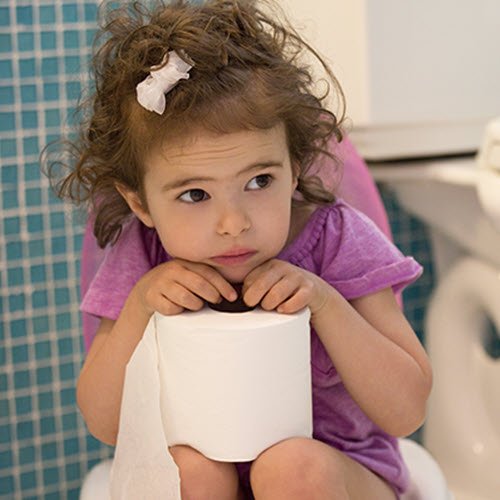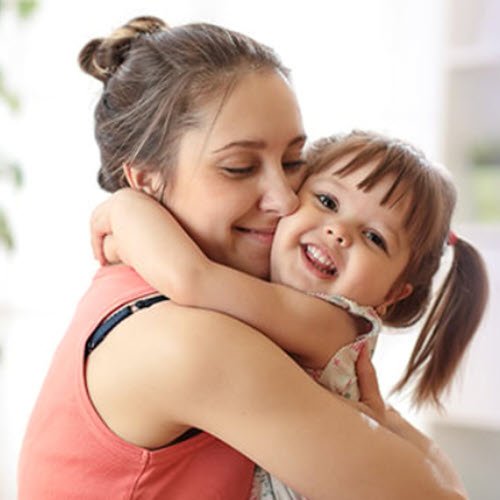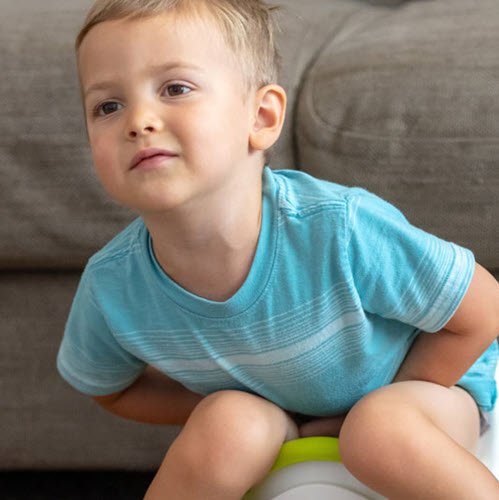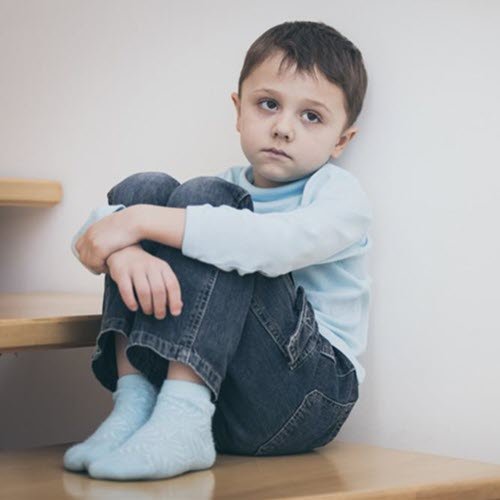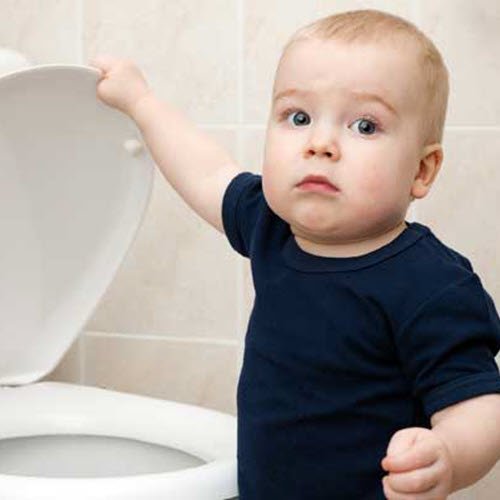Causes of Constipation In Children
What Causes Constipation?
Quick Menu
Diagnosing Constipation
A typical examination may begin with your child lying down while the GP feels the child’s tummy.
Complications of Constipation
Long-term constipation can increase the risk of fecal impaction, where dried, hard stools collect in your child's rectum and anus.
Treating Constipation
Diet and activity level changes are usually recommended as the first treatment for constipation.
Preventing
Diet can be a major factor, as can your child's activity level.
About Constipation
Constipation is a common condition that affects people of all ages, including children.
Symptoms of Constipation
When a child is constipated, passing stools become more difficult and less frequent than usual.
Causes of Constipation
A Poor diet, fear about using the toilet, and poor toilet training can all be responsible.
What Causes Constipation?
Quick Menu
Diagnosing Constipation
A typical examination may begin with your child lying down while the GP feels the child’s tummy.
Complications of Constipation
Long-term constipation can increase the risk of fecal impaction, where dried, hard stools collect in your child's rectum and anus.
Treating Constipation
Diet and activity level changes are usually recommended as the first treatment for constipation.
Preventing
Diet can be a major factor, as can your child's activity level.
About Constipation
Constipation is a common condition that affects people of all ages, including children.
Symptoms of Constipation
When a child is constipated, passing stools become more difficult and less frequent than usual.
Causes of Constipation
A Poor diet, fear about using the toilet, and poor toilet training can all be responsible.
About Constipation
Constipation is a common condition that affects people of all ages. It can mean that you’re not passing stools regularly or unable to empty your bowel.
Constipation can also cause your stools to be hard and lumpy, as well as unusually large or small.
The severity of constipation varies from person to person. Many people only experience constipation for a short time. Still, for others, constipation can be a long-term (chronic) condition that causes significant pain and discomfort and affects the quality of life.
Symptoms of Constipation
Normal bowel movements can certainly vary from child to child. Some children go to the toilet more than once a day, whereas others may go less frequently. Similarly, some infants pass stools several times a day, while others only pass them a few times a week.
If you or your child pass stools less than usual, it could be a sign of constipation.
A clear sign of constipation is that it is more difficult to pass stools and feel that the bowel is not empty. Stools may appear dry, hard, lumpy, and abnormally large or small.
Other symptoms of constipation can include:
- stomach aches and cramps
- feeling bloated
- feeling sick
- loss of appetite
Constipation in Children
As well as infrequent or irregular bowel movements, a child with constipation may also have any of the following symptoms:
- loss of appetite
- a lack of energy
- being irritable, angry, or unhappy
- foul-smelling wind and stools
- stomach pain and discomfort
- soiling their clothes
- generally feeling unwell
Causes of Constipation In Children
Constipation Causes in Babies and Children
Constipation in babies and children is quite common. It’s estimated that up to 1 in every three children may experience constipation at some point in childhood. A Poor diet, fear about using the toilet, and poor toilet training can all be responsible.
Poor Diet
Overfed children are more likely to have constipation, and this can be worse if a child does not get enough fluids. Babies who have too much milk are also more likely to get constipation. As with adults, your child must have enough fiber in their diet.
Toilet Training
You mustn’t make your child feel pressured about using the toilet. It’s also important to let your children try things by themselves (when appropriate). Constantly intervening when they’re using the toilet may make them feel anxious and can contribute to constipation.
Toilet Habits
Some children can feel stressed or anxious about using the toilet. They may have a phobia about using the toilet or are uncomfortable using a toilet at places outside the home.
This fear may result from your child experiencing pain when passing stools. This can lead to poor bowel habits, where children ignore the urge to pass stools and instead withhold them for fear of experiencing pain and discomfort. If a child does this, their condition will only get worse.
Other Conditions
In rare cases, constipation in babies and children can be a sign of an underlying condition, such as:
- Hirschsprung’s Disease – which affects the bowel, making it difficult to pass stools
- Anorectal Malformation – where the baby’s anus and rectum don’t form properly
- Spinal Cord Abnormalities – including rare conditions such as spina bifida and cerebral palsy
- Cystic Fibrosis – a genetic condition that causes the body to produce thick and sticky mucus, which can lead to constipation
Diagnosing Constipation
Constipation is not uncommon. A pharmacist may be able to confirm a diagnosis based on described symptoms.
Your pharmacist will ask questions about the nature of the bowel movements. Be open and honest when describing the symptoms. It’s important they’re aware of all the symptoms so that they can make the correct diagnosis.
Your pharmacist may also ask questions about diet, level of exercise, and whether there have been any recent changes to routines.
Constipation can be defined in several ways:
- Having a bowel movement less than three times a week
- Straining too much to have a bowel movement with than a quarter of the bowel movements
- Passing a hard or pellet-like stool on more than a quarter of occasions
Physical Examination
If your pharmacist thinks you may have fecal impaction (when dry, hard stools collect in your rectum), they may advise you to contact your GP for a physical examination. See complications of constipation for more information about fecal impaction.
A typical examination will begin with your child lying down while the GP feels the child’s tummy. The GP may also have your child lie on their side while your GP carries out a rectal examination using a lubricated, gloved finger. Your GP can feel for any stools that may have collected.
An internal physical examination rarely needs to be carried out on a child. Instead, the diagnosis can usually be made by feeling the child’s tummy.
An anorectal manometry can also be performed. This is where a small device with a balloon at one end is inserted into the rectum and attached to a machine that measures pressure readings from the balloon as the rectal muscles are squeezed and then relaxed. An anorectal manometry test shows how well the muscles and nerves work in and around the rectum.
Treating Constipation
Diet and lifestyle changes are usually recommended as the first treatment for constipation.
This includes gradually increasing the child’s daily fiber intake, making sure your child drinks plenty of fluids and helping your child to get more exercise.
If these aren’t effective, your pharmacist may recommend an oral laxative medication or enema to help your child empty their bowels.
Treatment for constipation is effective, although in some cases, it can take several months before a regular bowel pattern is re-established.
Complications of Constipation
Constipation rarely causes any complications or long-term health problems. Treatment is usually effective, particularly if it’s started promptly.
However, if a child has long-term (chronic) constipation, the child may be more at risk of experiencing complications.
However . . .
Long-term constipation can increase the risk of fecal impaction, where dried, hard stools collect in your rectum and anus.
Once you have fecal impaction, it’s very unlikely that you’ll be able to get rid of the stools naturally.
Fecal impaction makes constipation worse because it’s harder for stools and waste products to pass out of your anus, as the path is obstructed.
Fecal impaction can sometimes lead to several other complications, including:
- swelling of the rectum
- a loss of sensation in and around the anus
- bowel incontinence
- bleeding from the anus
- rectal prolapse – where part of the lower intestine falls out of place and protrudes from your anus (this can also occur as a result of repeated straining with chronic constipation)
Preventing Constipation
Making the diet and lifestyle changes mentioned above can also help to reduce the risk of a child developing constipation in the first place.
Giving your child enough time and privacy to pass stools comfortably may also help, and you should never ignore the signs that your child needs to go to the toilet.
Enemas for Children FAQs
We hope that you found this page on the Causes of Constipation in Children informative and helpful. You may also be interested in our FAQ page on Enemas for Children.

